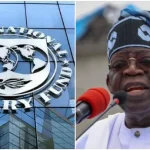The International Monetary Fund (IMF) has blamed Brexit and trade tensions between the United States and China amongst others as factors pulling down Foreign Direct Investment (FDI) in Nigeria.
According to the IMF, geopolitical tensions resulting from Russia’s invasion of Ukraine also contributed to the decrease in foreign investment in developing countries.
Join our WhatsApp ChannelPrime Business Africa previously reported that foreign capital importation in Nigeria fell to $1.06 billion in Q4 2022, from $1.16 billion reported in Q3 last year.
In 2019, the capital importation figure was $23.9 billion. The next year, $9.65 billion was recorded. It fell further in 2021 when $6.70 billion was reported, while in 2022, the foreign capital inflow dropped to $5.32 billion.
According to the IMF in its ‘World Economic Outlook: A Rocky Recovery report’, several emerging markets and developing economies are highly vulnerable to FDI relocation, as foreign capital inflow concentrates among geopolitically aligned countries.
“The recent slowdown in FDI has been characterized by divergent patterns across host countries, with flows increasingly concentrated among geopolitically aligned countries, particularly in strategic sectors.
“Several emerging markets and developing economies are highly vulnerable to FDI relocation, given their reliance on FDI from geopolitically distant countries.
“While a range of factors has contributed to this protracted phase, the fragmentation of capital flows along geopolitical fault lines and the potential emergence of regional geopolitical blocs are novel elements that could have large negative spillovers to the global economy.
“Firms and policymakers are increasingly looking at strategies for moving production processes to trusted countries with aligned political preferences to make supply chains less vulnerable to geopolitical tensions,” the report read.
IMF stated that global integration must be preserved due to the large and widespread economic costs of FDI fragmentation.
The global financial body also suggested that countries could use the opportunity of diversion of investment flows to attract new foreign direct investors.
“Some countries could reduce their vulnerability by promoting private sector development, while others could take advantage of the diversion of investment flows to attract new FDI by undertaking structural reforms and improving infrastructure,” IMF said.

















Follow Us